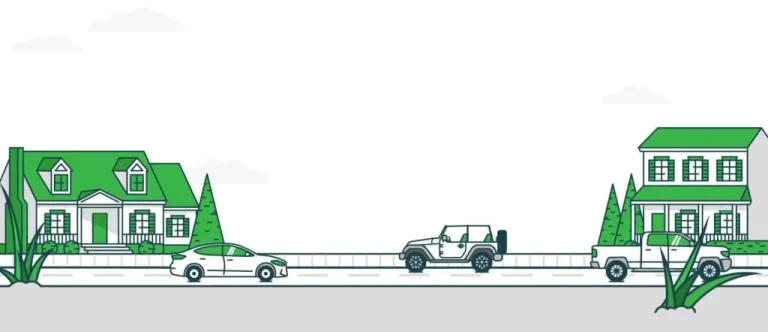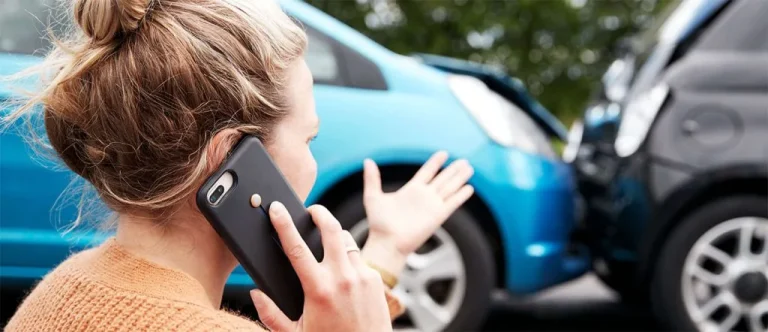The ability to drive gives you almost unparalleled freedom. You can go anywhere you want, as long as that place has roads. There’s just one prerequisite before you can take off: car insurance.
If you’ve just started driving, you might be using your parents’ cars for now. But, that doesn’t change the fact that you need insurance to drive. As a young person, it’s typically more cost-effective to be on your parents’ insurance, too. Let’s go over the details.
Can You Drive Your Parent’s Car Without Insurance?
No, you can’t drive your parent’s car without insurance, but you should be covered or be able to get on their auto insurance policy as long as you live with them. Most insurers cover someone else driving the policyholder’s car with their permission once in a while anyway. But, if you’re going to start driving one of your parent’s car regularly, you’ll need to be added or named on their auto insurance.
Every state, except New Hampshire and Virginia, requires you to have auto insurance to legally drive a car. The amount of mandated liability insurance – coverage that protects other drivers on the road from damage you might cause them – varies by state. But, its intended purpose is always to act as a financial safety net for drivers, as the cost of fixing potential vehicle damage is extenuating for most people.
If you live with your parents, whether you’ve just started driving or you’ve moved back in with them, and you’re going to start using their vehicles, you should be added to their car insurance. When getting a quote, insurers typically ask that all members of a household be listed on a plan.
People who share a household may share cars. So, providers want to know about all people of driving age in a policyholder’s house to fully understand the risk of giving that person coverage. The more people you have in your home, especially if you have younger drivers, the higher your risk. Thus, a carrier is likely to charge you more to offset this increased risk they’re taking on by protecting you.
But, this means you’re fully covered under your parents’ policy for as long as you live with them. You have the same policy limits, and you can file claims.
Adding drivers to a policy, especially young ones, raises rates because these new drivers have no favorable driving history for the insurer to see to analyze the new driver’s risk. Plus, young drivers are more likely to get into accidents and receive tickets than experienced drivers. This increases the likelihood of a claim, so insurers charge higher premiums to those with young drivers on their policies.
There’s no way around the expected rate hike of being added to your parents’ insurance, unfortunately. The good news is, though, that the cost to cover a new driver should gradually decrease the longer they go without incident.
If you don’t inform the insurance company that you’re driving your parents’ cars regularly, and you get in an accident, don’t expect your provider to help you out. Insurers aren’t likely to cover an accident from a driver they didn’t know about. You’ll likely have to pay all expenses yourself.
Some carriers may accept a claim from a driver they weren’t aware of, but then recoup the costs from the policyholder to make up for the higher premiums they were missing out on had you been covered like you were supposed to. Either way, you’ll end up paying.
Some insurers aren’t so lenient. You risk nullifying your parents’ coverage altogether if you’re driving their cars regularly without notifying their provider. Their policy could get canceled.
When Can You Drive Your Parent’s Car With Their Insurance?
You can drive your parents’ cars when on their insurance at any time. While any regular drivers of a vehicle need to be listed on the policyholder’s insurance, you can let people borrow your car every so often. These people you allow to drive are generally covered under your insurance while using your car. Insurance companies call this permissive use, and most carriers don’t have a problem with it.
So, if your son or daughter comes home for the weekend, for example, allowing them to use your car shouldn’t be an issue. Accidents they cause should be covered by your auto insurance. This is because car insurance tends to follow the car, not the driver. When using your car, your son or daughter would be covered under your policy.
When Can You Drive Your Parents Car With Your Own Insurance?
Driving your parents’ cars when you have your own insurance policy is also not an issue. If you do unfortunately get into an accident when driving their car, your liability coverage should follow you, while their collision coverage should help cover the accident costs.
Can a Relative Drive My Car?
Yes, a relative can drive your car every so often. Insurers allow this through permissive use. Permissive use is the acknowledgment by insurance carriers that some people other than the policyholder might drive the insured vehicle from time to time, which isn’t an issue. This doesn’t nullify the coverage.
Permissive use has limits, though. You can’t be lending your car to a family member every other day, for instance. Double-check with your provider if you’re regularly letting someone outside of your household use your car. This may change your level of risk.
Someone borrowing your car frequently who doesn’t live with you may want to look into non-owner car insurance. Non-owner car insurance is what it sounds like: liability coverage for someone who doesn’t own a vehicle but still drives a lot.
Non-owner car insurance may be useful for someone who is classified as a high-risk driver. For instance, someone who has recently received a DUI may get non-owner car insurance as a first step to driving again. Or, if you’re currently between cars but don’t want to let your auto coverage lapse, you should consider non-owner car insurance.
The editorial content on Clovered’s website is meant to be informational material and should not be considered legal advice.




